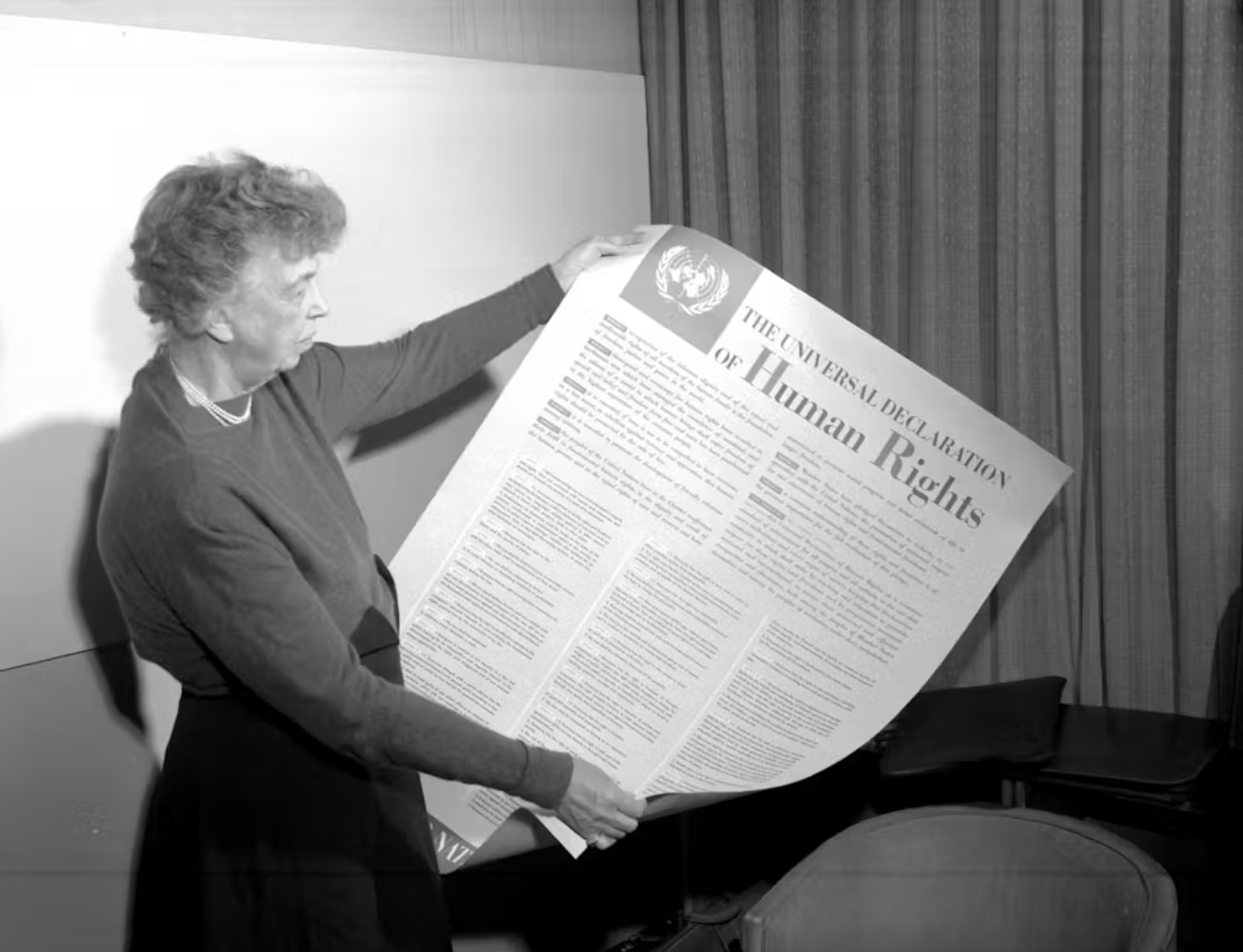Political
“Where, after all, do universal human rights begin? In small places, close to home – so close and so small that they cannot be seen on any maps of the world. Yet they are the world of the individual person; the neighbourhood he lives in; the school or college he attends; the factory, farm or office where he works. Such are the places where every man, woman and child seeks equal justice, equal opportunity, equal dignity without discrimination. Unless these rights have meaning there, they have little meaning anywhere. Without concerned citizen action to uphold them close to home, we shall look in vain for progress in the larger world.” - Eleanor Roosevelt
The UDHR helped most governments by creating more than seventy documented human rights that most countries voted to agree on. The UDHR fixed the rights that didn’t cover being “free from torture, freedom of expression, the right to education, and to seek asylum." The UDHR helped the world by the “adoption of more than seventy human rights treaties.”
Central for the drawing process was Eleanor Roosevelt, who acted as chairman of the United Nations Human Rights Commission. Roosevelt's leadership not only incorporated the spirit of commitment necessary for global consensus, but also reflected his personal experiences and defense of social justice, which profoundly influenced the content of the declaration.
"UDHR's adoption was a Herculean task that brought together several perspectives within a fragile international community" - Mary Ann Glendon

(United Nations)